- Home
- Patrick Robinson
Hunter Killer Page 40
Hunter Killer Read online
Page 40
“That should slow them down some,” said Morgan. “But the French are proud and arrogant. Admiral Dickson and I think the next French tanker will enter the Strait of Hormuz under escort. And that’s when we cause a total uproar. We hit the escort first, with a torpedo. Then we hit tanker number three. And that will wrap it right up for France. They will not try to exit the Gulf with fuel oil again until we’re good and ready to allow it.”
“Arnie, is this a public operation…like we hit and we don’t care who knows it?” General Scannell, the Chairman of the Joint Chiefs, looked concerned.
“Not at this stage,” replied Morgan. “We’ll launch from submarines, way under the surface, and we will not admit to anyone what we’ve done. We’ll just let ’em all have a guessing game.”
“Torpedoes?” asked the CJC.
“Yes. Fired from several miles out. But not in the case of the last tanker. We’ll hit that with three or four Harpoons, set the oil on fire, save a lot of pollution.”
“Do you intend to let anyone know it was the U.S. of A. that sank the ships?”
“No.”
“I realize this is a kind of naive question to ask in a room full of sailors,” said General Scannell, “but how do we know if a tanker is full of French oil or not? I thought they were all registered in Liberia or Panama or somewhere. They must all look the same.”
“In a sense, they do, Tim,” replied Admiral Dickson. “But we’ve been checking on both the VLCCs and the ULCCs which service France…”
“What’s a ULCC?”
“Same as a VLCC, that’s a very large crude carrier. A ULCC is an ultra-large crude carrier, maybe up to four-hundred thousand tons.”
“We gonna hit one of those?”
“Maybe,” said Admiral Dickson. “But to answer your question about identifying the correct target, we’ve been researching the TotalFinaElf conglomerate and the methods it uses to move large quantities of oil. And much of it is done by a highly reputable corporation based in Luxembourg. It’s called TRANSEURO, and they’ve run a fleet of maybe fourteen or fifteen tankers for years, under long-term charter to Total, mostly in the two-hundred-fifty– to three-hundred-thousand–ton range.
“In the trade they call it French Flag Tonnage. But these tankers ply their trade back and forth from the Gulf to Marseille, Brest, and the other French oil ports. They can carry either crude oil or liquid natural gas. And we can identify them with no trouble, even if they choose to fly a flag of convenience.”
“We got submarines somewhere close?” asked General Scannell.
“Very close,” said Admiral Dickson. “In fact we got two of the best submarines in the fleet out there right now. They’re in the Arabian Sea with the Ronald Reagan CVBG. The two newest Virginia-class SSNs, Hawaii and North Carolina…really great boats, seventy-eight-hundred-ton submerged-launch Tomahawk cruise missiles and thirty-eight Mark 8 ADCAP torpedoes.
“If we need four more, which I think we do, the Cheyenne and the Santa Fe—coupl’a L.A.-class attack submarines with the Constellation Group—are on station in the Gulf, off Kuwait. And we got Toledo and Charlotte ready to clear Diego Garcia any time we need ’em. Just so Connie ain’t hanging around with no underwater backup.”
“You don’t see surface ships being needed?” said General Scannell.
“Well, we don’t want to announce our presence, and I don’t see a need for us to do so. This is a very simple subsurface operation. But we got a couple of Arleigh Burke guided-missile destroyers within two hundred miles.”
Arnold Morgan knew Dickson was referring to the Decatur and the Higgins—9,000-tonners, both built in Maine—two of the most lethal warships afloat. Both armed with short-range deadly accurate McDonnell Douglas Harpoons, with their ship-killing 227-kilogram warheads, plus fifty-six Tomahawk ship-launch cruises. A thin smile crossed the face of the Chief of Operation Tanker.
“I may be slightly at a loss here,” said Admiral Doran. “But can someone tell me what precisely we hope to gain from this? What good will it do us to sink French tankers?”
“Well, in part it’s a point of principle,” said Arnold Morgan.
“The current financial crisis is going to get worse. There’ll be shocking repercussions for people all over the world. And the basis for our actions is to hang France from the highest tree in front of the international community. That way we’ll save President Bedford. If we do nothing, he’ll end up getting the blame, because that’s the way the world works.
“The U.S. economy goes down the gurgler. The press and indeed the people will round on the President of the day and ask why he did nothing while Wall Street burned. But they can’t hardly do that if we got us a real live culprit out there swinging in the wind.”
Admiral Dickson interjected. “And the humiliation of France may well pave the way for the U.S.A. to move back into Saudi Arabia and take charge of the global distribution of the oil. We’ll still pay the Saudis, same as they’ve always been paid, but we may just have to get into control and make darned sure this does not happen again.” Like all service chiefs, the Admiral saw a major role for the U.S. Navy right here, and he was not about to let the opportunity slip by. “As I see it,” he continued, “we gotta make France seem like too big an embarrassment for the Saudis, or anyone else in the oil game, to deal with.”
“Correct,” said Admiral Morgan. “I also intend to inflict some heavy damage in some of their harbors. I thought we might get Admiral Bergstrom’s boys to take out a few luxury yachts along the Riviera. That will further alienate the Middle Eastern oil states against France. They all keep their damn great private ships in French ports, or Monte Carlo.
“Essentially, we’re working to a master plan, and you’ll find the pieces all fall into place very quickly. There is, however, one missing piece, and we must find it.”
“What is it?” asked General Scannell.
“We have to find the French Colonel who led the attack in Riyadh. He’s Jacques Gamoudi, and we need to kidnap his wife and children, and then grab him and get them all to America. And we gotta do it before the French assassinate him, which they’ve already tried to do once.”
“Jesus,” said the Boston Irishman Frank Doran. “This is like working for the Mafia.”
Everyone chuckled at that. But Arnold Morgan agreed with him. “Sometimes,” he said, “contrary to the policies of a certain Democrat of the nineties, you gotta get down and dirty.”
“The first two options are easy—the sinkings and the blastings,” said Admiral Dickson, “but how do you think we’ll get along in the kidnapping business?”
“Right now we have the CIA and the FBI working in Riyadh,” replied Morgan. “So far as they know, Colonel Gamoudi has not yet left the city, although he might have. However, we think the situation is, for the moment, static. The French are trying to assassinate him, but he is under heavy protection from the King, and is probably holed up in one of the palaces.”
“What about his family?” asked Admiral Doran.
“That may turn out to be key,” said Morgan. “My own view is we should snatch them, using SEALs and helicopters if necessary, and get them the hell out of France. That way we got some chips. Then we somehow let Gamoudi know we got everyone safe in the U.S.A., and all he has to do is locate us, somehow, somewhere, and he’s safe, too.
“Then we put him in front of the UN, he cuts the balls off the lying French, and we give him a new identity and a new life. That’s when we go and take over the Saudi oil, because no one can deal with France, and the towelheads can’t do it without us.”
“Neat,” said Admiral Doran. “I’ll tell you something, that Gamoudi character just became the most important man on this planet. And we got the added problem of the French trying to kill him.”
“If I were French, I’d be trying to kill him,” said General Scannell. “All I can say is we better get Mrs. Gamoudi real quick, and try to avoid breaking more than about a hundred international laws while we’re about it.
”
“You’re right there,” said Morgan. “We screw this up, we’re in more trouble than France. Because without Gamoudi we can’t prove a damn thing. Anyone know what time John Bergstrom is due in?”
“Thirteen hundred,” said Frank Doran. “He left San Diego at o-five-hundred this morning.”
TUESDAY, APRIL 6, 1330
THE WHITE HOUSE
Two armed, uniformed guards were waiting at the helicopter pad on the White House lawn, staring into the skies way down across the eastern bank of the Potomac. They could see it now, the big U.S. Marine guided-missile gunship, the Super Cobra, clattering in over the river.
On board was the Emperor SEAL, Admiral Bergstrom, Commander in Chief of SPECWARCOM, the top Special Forces unit in the U.S. military. The Marine guards watched the helicopter bank right and then settle gently onto the White House landing area. The loadmaster was out before the brand-new four-bladed rotor even slowed down. He opened the door for the Admiral, who stepped down and returned the rigid salute of both guards.
“This way, sir,” said one of them. And beneath the steady gaze of a fully armed SWAT team, positioned with machine guns primed on the White House roof, the three of them headed up the short, grassy slope to the West Wing entrance. Today’s meeting, comprising just Adm. Arnold Morgan and Adm. John Bergstrom, would be, as ever, a strategic discussion, for “action this day,” between two of the toughest men who ever wore shoes.
They greeted each other like old friends, and Morgan outlined the situation, stressing the critical nature of the capture of Colonel Gamoudi, and the even more critical nature of the kidnapping of Giselle and the two boys.
Admiral Bergstrom was thoughtful. “I do see the problem,” he said. “If we have the family members, the Colonel will want to come over to us. If we don’t, he will not want anything to do with us.”
“That’s right,” said Morgan. “And it’s likely to be ten times easier to find a man who is trying to find us, than to find a guy who’s essentially on the run.”
“And you are proposing to send a team of SEALs into a tiny French town in the Pyrenees and snatch Giselle and her boys?” John Bergstrom looked highly doubtful.
“You think that’s a problem?” said Morgan.
“It’s not a problem to grab them. And it’s not a problem to get them away. It’s the sheer ramifications that bother me. First of all, it’s plainly illegal. Second of all, it’s damn nearly a declaration of war—the U.S. military going into action against innocent foreign civilians in full public view.”
“Well,” said Morgan, “How about we put the SEALs in plain clothes?”
John Bergstrom was deeply unimpressed. “Arnie,” he said, “you can’t hide or disguise SEALs.”
“Why not?”
“They’re not the same as other people.”
“What do you mean?”
“They look different.”
“In what way?”
“They just stand out. Their powerful physiques…crew cuts. They just look too hard, too healthy…the way they carry themselves…the way they walk…straight backs, erect…fantastic posture…they look like they’re marching even when they’re going for lunch. And they have this alert, wary look about them, like wolves. Arnie, they can’t help it. They’re trained killers.
“And Mrs. Gamoudi’s going to be under escort, and those escorts will recognize my guys at a hundred paces. You want a nice quiet grab at three civilians, you gotta do it with civilians. My guys could cause a fucking uproar. Trust me. They’re not trained in subtlety.”
Admiral Morgan nodded. For a few moments he paused, then he said, “I’m getting kinda used to making shaky judgments on this operation. Guess I must be getting old.”
“The best of us make shaky judgments,” said John Bergstrom.
“And it doesn’t matter a damn. The only thing that matters is how quickly you recognize the problem, and how ready you are to make the change.”
“I’m ready,” said Morgan. “What do you suggest?”
“Okay. We got a nice French lady and her two young sons. They’re effectively under house arrest, right? By the French Secret Service, somewhere near the town of Pau, in the Pyrenees. We have to hand this to the CIA and they have to locate her and watch the house for a couple of days. When they pounce, they do it quietly, in the street. A diversion. The grab. Getaway car. Escape by helicopter. No problem. Very fast. No one knows what the hell has happened.”
Admiral Morgan visibly brightened. “Got it,” he said. “You’re right. But what about when we grab the Colonel himself?”
“That has to be at a seaport or on a beach. Then my guys can move in and complete the operation. But if the French are trying to kill him, we may have to be pretty darned brutal in our execution of the mission.”
“The stakes are about as high as they can get, John,” said Morgan quietly. “We better get a full team of your guys on standby, probably in the Mediterranean. Because we’re gonna find the ol’ Chasseur in there somewhere.”
“Who the hell’s the Chasseur?” asked Admiral Bergstrom.
“Oh, that’s Colonel Gamoudi’s nickname. He’s had it a long time. Le Chasseur. It’s French for The Hunter.”
“That’s not good,” replied the SEAL Chief.
“Why not?”
“Because guys don’t get names like that unless they are damned dangerous. Was he ever in the Special Forces?”
“Sure was. First Marine Parachute Infantry. And the French Foreign Legion. And the French Secret Service, on active duty in North Africa.”
“Jesus Christ,” said John Bergstrom. “That’s a trained professional fighter. You don’t want to try and take him against his will. Otherwise someone’s going to get killed. You have to get Mrs. Gamoudi and the kids. And you have to get ’em real quick.”
FOUR DAYS LATER, SATURDAY MORNING, APRIL 10
PYRENEAN CITY OF PAU
Andy Campese and a CIA team of some fifteen field operators, including his colleague Guy Roland, had been tracking, watching, and logging the life of Giselle Gamoudi for several days. It had been a simple matter to trace her to her mother’s house, north along Montpensier Avenue, to a tree-lined residential area near Lawrence Park.
But she was never out of the house for more than a half hour, and she was never without two plainly armed escorts, one of whom was, quite often, the same Secret Service officer Andy had met at her own home back in the village of Heas.
The boys were always with her. But Campese had seen no sign of their attending school. This was plainly an enforced break, courtesy of the French government. He had expected it to be a mission packed with tension, since the French Secret Service obviously wished to keep her away from any intruders. But thus far he had been mildly surprised at how relaxed his quarry and her “minders” seemed to be. Right now Campese and young Roland were sitting in a parked car watching the driveway of Giselle’s current residence. She was in the car with a driver, but the left, rear passenger door of the car was open, awaiting, Campese guessed, the arrival of the two boys.
He was correct about that. The older one came running out first, followed by the yelling Andre. They both piled into the backseat, and the car pulled out into the south-running avenue that led to the central area of Pau, almost a mile away. An identical car, parked in the street right outside the house, immediately fell in behind them.
Andy Campese hit the buttons on his mobile phone, making three short calls in less than a minute. At the same time he ordered his driver to track Giselle’s Peugeot and her escort car. All three of them moved out into the Saturday-morning shopping traffic.
In the center of town, at the junction of Place Clemenceau and Rue Marechal Foch, the lead Peugeot slowed to a stop, and Giselle and the boys climbed out. Two men climbed out of the escort car, and Andy Campese’s man pulled into a no-parking area of the adjacent Rue Marechal Joffre.
He and Guy Roland disembarked and moved quickly into the Place Clemenceau, from where they could
clearly see Giselle and her sons walking slowly past the shops, with their two escorts strolling along around ten feet behind them.
Campese hit the buttons on his mobile again. This time he made two calls, and he finished only one of them. For the next hundred yards he walked with the phone held to his ear.
Giselle reached a large pharmacy and ushered the two boys inside. Her escorts did not follow her, but hung around outside, smoking, in front of the large window next to the main door.
It was a busy street, and neither of the guards seemed to notice three more CIA men disembark from a black Mercedes that was now double-parked twenty yards beyond the pharmacy. Neither did they notice two more tough-looking characters wearing heavy dark blue sweaters and Breton fishermen caps, walking slowly along the street from Rue Marechal Foch.
They did however notice a very pretty blonde woman in the passenger seat of another double-parked car on the other side of the street, who seemed to be giving them a broad smile—but that might have been mere wishful thinking. The French do quite a lot of that where women are concerned.
The minutes ticked by. Then five more. And finally, Giselle Gamoudi emerged from the pharmacy with Andre, but not Jean-Pierre, who showed up fifteen seconds later. As the three of them stepped out into the street, Andy Campese raised his right arm.
The blonde woman stepped out of the car, showing legs up to her panties, and let out a piercing scream. It had taken Campese two hours to persuade Agent Annie Summers to wear a skirt that short and then to scream the place down in the middle of Place Clemenceau.
Both of Giselle’s escorts moved instinctively toward the blonde, one of them literally running to her aid. And as he did so, the first of the men in the Breton caps raced forward and intercepted him, kicking his legs out from under him and slamming a boot into the back of the man’s head, knocking him senseless.
His colleague did not have time to move. The second man in the Breton hat was on him, slamming a fist into the guard’s solar plexus and driving a knee straight into the man’s jaw as he fell forward. The men from the Mercedes rushed forward, dragged the inert figure out of the road, and stood guard over both unconscious bodies.

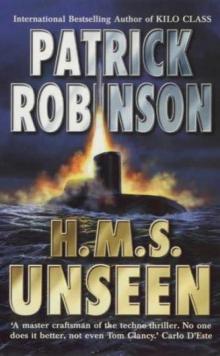 H.M.S. Unseen am-3
H.M.S. Unseen am-3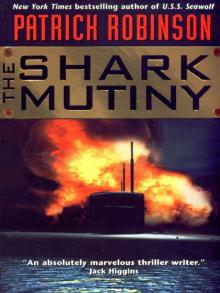 The Shark Mutiny (2001)
The Shark Mutiny (2001)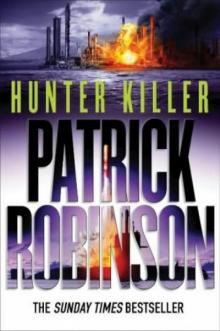 Hunter Killer am-8
Hunter Killer am-8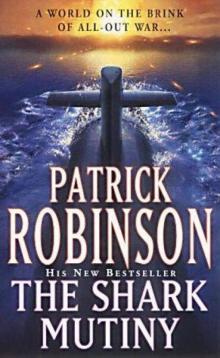 The Shark Mutiny am-5
The Shark Mutiny am-5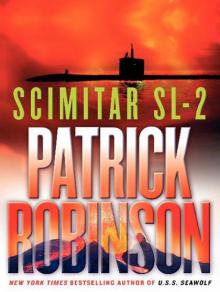 Scimitar SL-2
Scimitar SL-2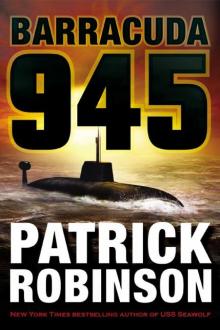 Barracuda 945 am-6
Barracuda 945 am-6 Hunter Killer
Hunter Killer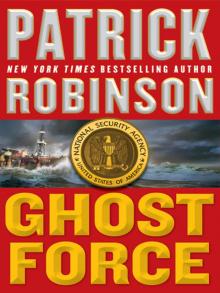 Ghost Force
Ghost Force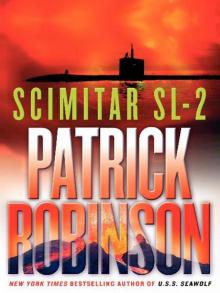 Scimitar SL-2 (2004)
Scimitar SL-2 (2004)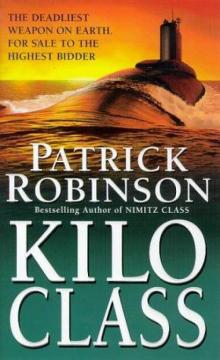 Kilo Class am-2
Kilo Class am-2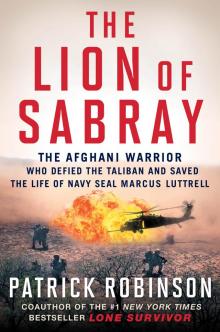 The Lion of Sabray
The Lion of Sabray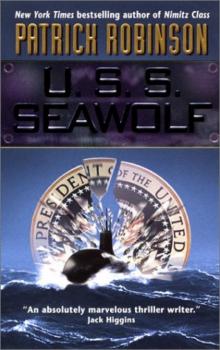 U.S.S. Seawolf am-4
U.S.S. Seawolf am-4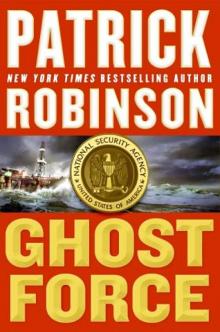 Ghost Force am-9
Ghost Force am-9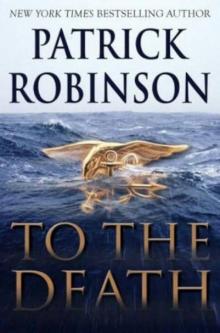 To the Death am-10
To the Death am-10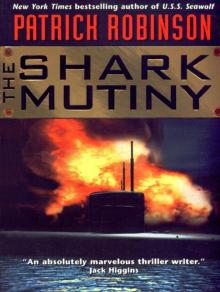 The Shark Mutiny
The Shark Mutiny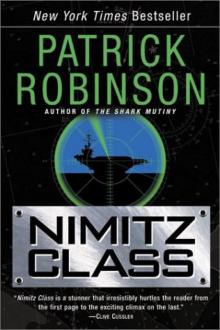 Nimitz Class am-1
Nimitz Class am-1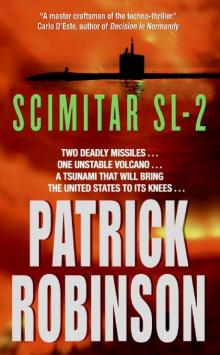 Scimitar SL-2 am-7
Scimitar SL-2 am-7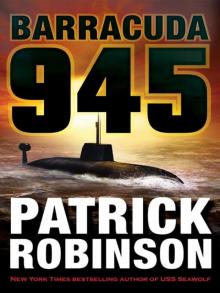 Barracuda 945
Barracuda 945 Intercept
Intercept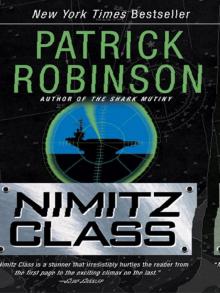 Nimitz Class (1997)
Nimitz Class (1997)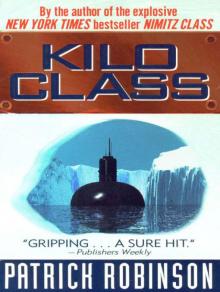 Kilo Class
Kilo Class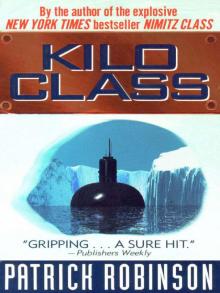 Kilo Class (1998)
Kilo Class (1998) Diamondhead
Diamondhead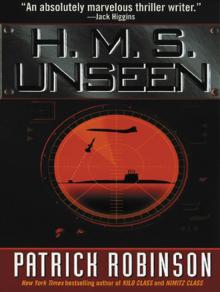 H.M.S. Unseen
H.M.S. Unseen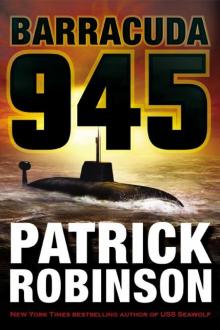 Barracuda 945 (2003)
Barracuda 945 (2003)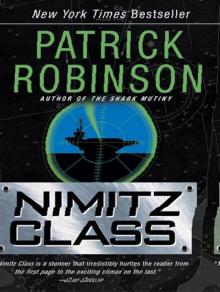 Nimitz Class
Nimitz Class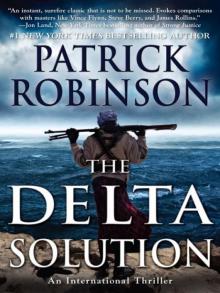 The Delta Solution
The Delta Solution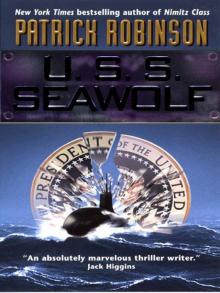 U.S.S. Seawolf
U.S.S. Seawolf